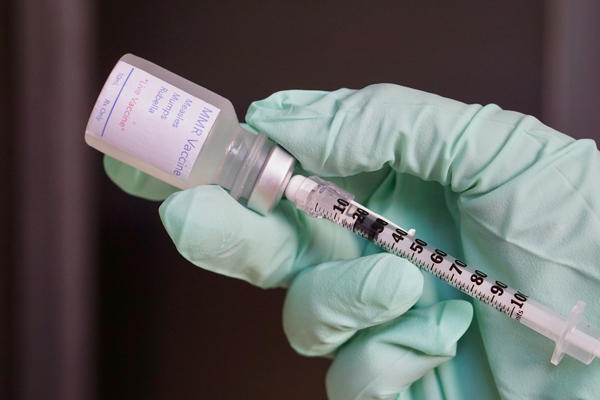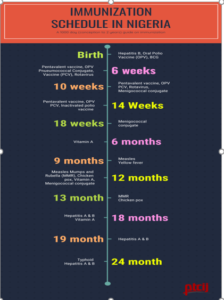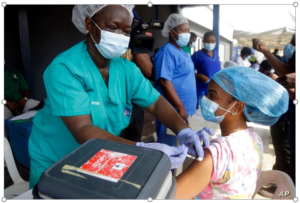The most fascinating thing about vaccines is that they protect you and others.
It all began in 1721 when an uninfected person got exposed to matter from smallpox through a process called variolation. This process caused reduction of smallpox mortality and morbidity rate in the population that used variolation than those that didn’t.
But it was Edward Jennes, an English Physician and Scientist, who in 1796 became ‘father of vaccination’. Jennes was prompted by cow maids that boasted that they can’t get smallpox infection because they already have cow pox. After careful observation Jennes experimented intentional infection of people with cowpox and found out that they are protected from the much more serious infection of smallpox. The experiment paid off because within a few years thousands of people protected themselves from the deadly smallpox disease by intentional infecting themselves with cowpox.
Jennes experiment was called vaccination after ‘vacca’ the Latin word for cow. Though Jennes theories about vaccination was then not widely accepted, but by 1900, vaccines have become so common place. The result of widespread vaccination has been a marked decrease in diseases which once ravaged the world population.
Immunization / Vaccination
A process of artificial induction of immunity into the body to protect against infectious diseases. According to WHO, vaccination is a simple, safe, and effective way of protecting people against harmful diseases, before they come into contact with them. It uses body’s natural defenses to build resistance to specific infections and makes immune system stronger.
Before the advent of vaccines, virtually every home had painful stories of loss of loved ones to killer diseases like diphtheria, tetanus, pertussis, influenza and measles, to tell. Vaccination or immunization changed the global health narratives from short living to long living as about 3 million deaths are averted annually.
Vaccines are arguably the most important public health tools available today. Since the successful eradication of smallpox with the use of the vaccine, many vaccines have become available to man.
Of great importance to public and child health are the vaccines against the so-called six childhood killer diseases-measles, pertussis, diphtheria, tetanus, tuberculosis and poliomyelitis and vaccines against the major causes of pneumonia.
Vaccine against a germ either bacteria or virus helps the body immune system to recognize the germ and produce antibodies to fight the germ. Antibodies are proteins produced naturally by the immune system to fight disease. When and if the body is exposed to such germ, the body immune systems quickly destroy it before the person become unwell.
Our immune systems are designed to remember. Medical journal and experts say when we take one or more doses of a vaccine, we remain protected against a disease for years, decades or even a lifetime. Our people say prevention is better than cure; Rather than treating a disease after it occurs, vaccines prevent us in the first instance from getting sick.
Benefits of Vaccination
Data from many parts of the world including African countries have shown life-saving benefits of vaccines. According to WHO, vaccination prevents about 3million death annually. Other benefits of vaccines include:
- Prevention of life-threatening infectious diseases. WHO estimates that childhood vaccines alone save over 4 million lives every year.
- Prevention of sufferings and disabilities
- Effective health investment with proven strategies that make it accessible to most hard-to-reach places and vulnerable population
- Ease strains on health care system and save money that can be used in other health care services.
- Clearly defined target group
- Does not require any major change in lifestyle

Coverage.
But despite the apparent benefits of vaccination/ immunization, there has been laxity in its coverage and development in the last two decades. These problems are summarized by the following WHO immunization key facts:
- Global coverage dropped from 86% in 2019 to 83% in 2020
- An estimated 23 million children under the age of one year did not receive basic vaccines, which is the highest number since 2009. Of these 23million, 60% live in 10 countries including Angola, Brazil, the Democratic Republic of the Congo, Ethiopia, India, Indonesia, Mexico, Nigeria, Pakistan and the Philippines.
- In 2020, the number of completely unvaccinated children increased by 3.4 million.
- Only 19 vaccine introductions (excluding COVID 19) were reported in 2020, less than half of any year in the past two decades.
- 6 million more girls were not fully protected against human papillomavirus (HPV) in 2020, compared to the previous year
Available global vaccination report indicates that despite the availability and effectiveness of many vaccines, poor national health systems hampered many countries from taken full benefits of the vaccines. Apart from poor national health systems, Covid 19 disruptions seriously affected immunization coverage in 2020 as the global health sector continue to grapple with the prevention of the spread of the virus.
Are Vaccines Safe
Yes, vaccines are safe. Some people ignorantly say that since vaccines induces germs to the body, it causes disease of the germ in the body. This is not true. Vaccines contain only the destroyed and or weakened form of the germ that help the body’s antibodies to recognize the active form of the germ and fight such live germ when the body is exposed to it.
Every vaccine also goes through extensive and rigorous testing to ensure it is safe. WHO says experimental vaccine is first tested in animals to evaluate its safety and potential to prevent disease before being tested in human clinical trials, in three phases:
Phase I, the vaccine is given to a small number of volunteers to assess its safety, confirm it generates an immune response, and determine the right dosage.
Phase II: Tested on hundreds of volunteers, who are closely monitored.
Phase III: Tested on thousands of volunteers –
Before any vaccine is introduced to national immunization program WHO says it must go through proper efficacy and safety reviews.
As with many medicines, medical experts say vaccines can cause mild side effects, such as a low-grade fever, or pain or redness at the injection site, these go away within a few days on their own.
WHO says vaccines are continually monitored for safety, to detect rare adverse events.
–Vaccine Properties
All the ingredients of a vaccine play an important role in ensuring a vaccine is safe and effective. Ingredients include:
The antigen: This is the killed or weakened form of a virus or bacteria, which trains our bodies to recognize and fight the disease if we encounter it in the future.
Adjuvants: Help to boost our immune response to help vaccines to work better.
Preservatives: Ensure a vaccine stays effective.
Stabilisers: Protect the vaccine during storage and transportation.
Reasons to get Vaccinated
Vaccines help us prevent serious illness and disability. The two key reasons to get vaccinated are to protect ourselves and to protect those around us. It is always not possible to get 100% vaccination on a given population but when more people are vaccinated, the few unvaccinated including, very young babies, those who are seriously ill or have certain allergies depend on others being vaccinated to ensure they are also safe from vaccine-preventable diseases.
Don’t wait until sickness comes or there is an outbreak of a disease before you get the vaccine, because there is no guaranty that you may come out of the sickness alive.
Young children particularly are most vulnerable to diseases and infections because their immune systems are not yet fully developed, and their bodies are less able to fight off infection. It is therefore very important that children are vaccinated against diseases at the recommended time. (see immunization schedule in Nigeria below)
Some of the diseases that vaccines prevent include:
Cervical cancer
Diphtheria
Hepatitis B
Influenza
Japanese encephalitis
Measles
Meningitis
Mumps
Pertussis
Pneumonia
Polio
Rabies
Rotavirus
Rubella
Tetanus
Typhoid
Varicella
Yellow fever
Cervical cancer
Cholera
COVID-19
COVID 19 VACCINATION
The biggest global health challenge today is perhaps Corona virus. While scientists were still researching the vaccine for the virus, it broke out at a pandemic proportion infecting unvaccinated defenseless citizens and causing large number of deaths across the globe. As at 21, August,2021, the total confirm cases was 209,876,613 including 4,400, 284 deaths (Source: WHO COVID 19 Dashboard). Even though vaccine has been developed for the virus, mutations of strongly transmissible variants continue. And this underscores the point that we don’t wait for outbreak of diseases before we get vaccinated.
The vaccination figure for Nigeria is abysmally poor. For a population of about 200million, 3,967,013 vaccine doses have been administered due to combinations of skepticism, fear factor and unavailability of the vaccine
However, the Nigeria health authority have announced the commencement of distribution of 4,080,000 doses of the Moderna vaccine for second phase of covid 19 vaccination aiming to vaccinate 40% of the population by end of 2021 and another target of 30% by the end of 2022.
Eventually Nigeria and other developing countries will get over the problem of vaccine unavailability, but will the people be available? This is a critical question and crucial to overcoming the scourge of COVID 19.
We hope this post is valuable to you. To know all the accredited COVID 19 Vaccination centers, sign on in the comment box.
Source: Dare Agbeluyi, Chief Publisher
Publisher’s Note:
- Leave your comments in the comments box below and share the post
- Send your health- related articles, stories, tips to co*********@ya***.uk for free publication
- Like and share our Facebook page: @citizencomfortng





Thank you for info.
Interesting and educative article there.
While government is trying to make the covid 19 vaccines available;deliberate efforts should be made to douse the effects of wrong information and conspiracy theories on the populace.
Nice piece. I got the two doses of the Astrazenica vaccine. No side or adverse effects whatsoever. Most side effects are between mild to moderate which is normal for any vaccine. I encourage everyone to get vaccinated when you can!!
This article is very educative. It throws light on wrong information and assumptions about vaccines
Big thanks to the Chief Publisher.
Very educative.Thank you for this article sir.